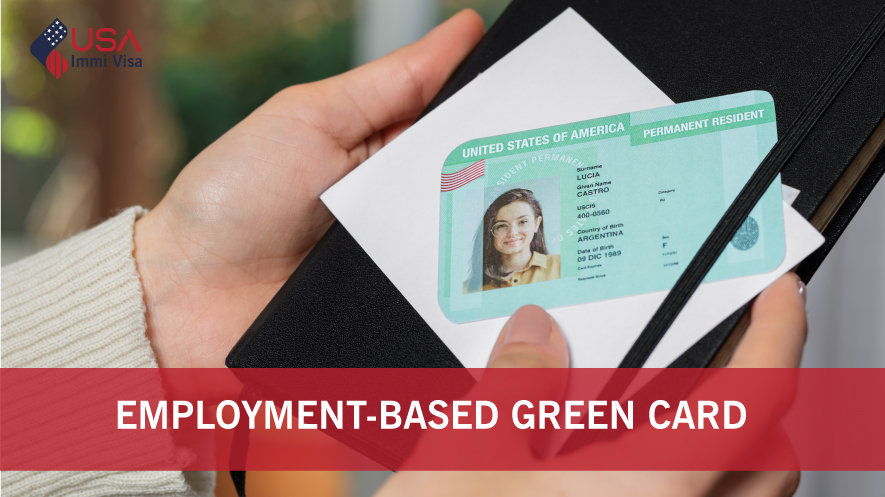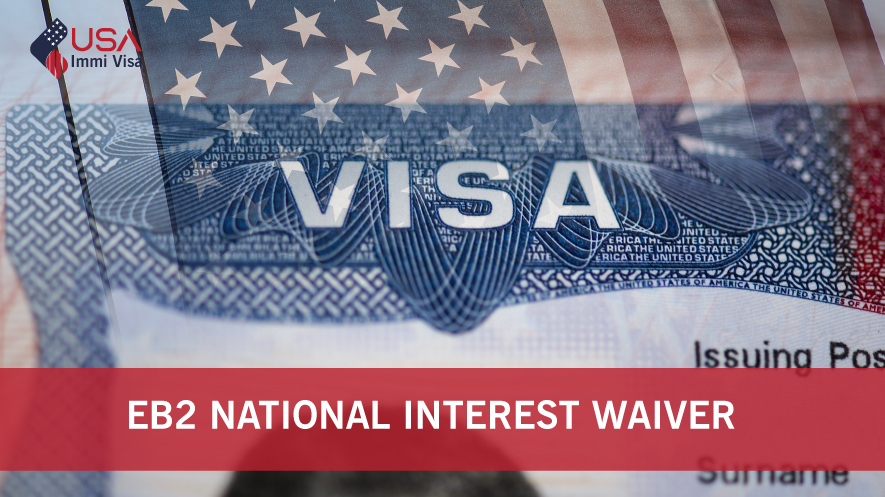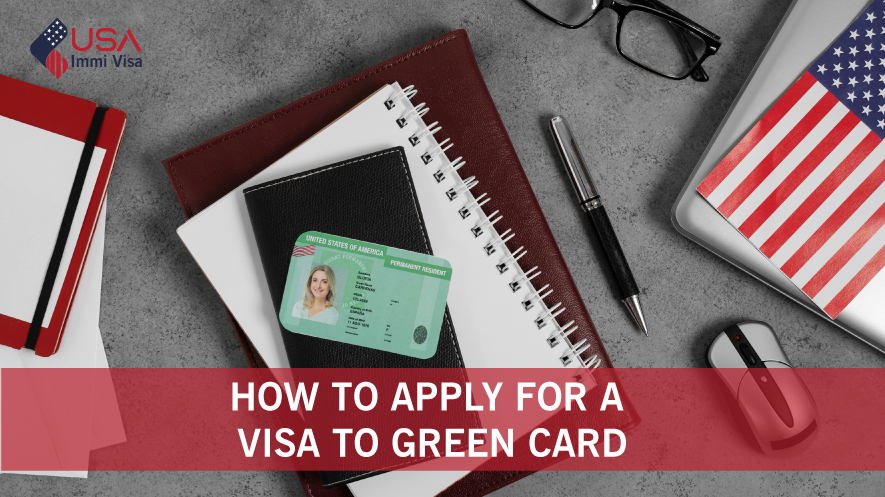Green cards are proof that you have permanent resident status in the United States. The federal government issues a limited number each year, and applicants may need to wait for their turn depending on their category. Check the Visa Bulletin on the State Department website for current information.
Employment sponsored green cards allow you to stay in the US if a company offers you a job and gets a labor certification.
Employment-Based Green Card
For individuals who want to immigrate to the United States permanently, employment-based green cards are an option. These are broken down into categories based on the type of job and credentials involved.
Most employment-based green card categories require a qualifying petition to be filed on behalf of the applicant by an employer. These petitions must be approved by USCIS and meet certain requirements, such as having been working in the company outside the United States for more than a year and having a qualifying relationship with that employer. In addition, the beneficiary must have a minimum of a bachelor’s degree or equivalent work experience and meet the minimum qualifications for the position offered.
The two main employment-based green card categories are EB-1, for workers of extraordinary ability, and EB-2, which applies to professional workers with advanced degrees or those with at least a baccalaureate degree. Other categories include EB-3, which generally applies to skilled workers or professionals with at least a baccalaureate or equivalent degree and EB-4, which applies to special immigrants (such as religious workers or domestic violence victims), or EB-5 investment-based immigration.
Many individuals who are in the process of applying for a green card through an employer will start by coming to the United States with a nonimmigrant visa, such as an H-1B or L-1 visa. Then they will wait for their green card through the employer-sponsored PERM Labor Certification or EB-2 Outstanding Researcher or Professor, or one of the other employment-based categories, to become available.
When a green card becomes available for an individual in one of these categories, they can file an adjustment of status application with USCIS. This is possible because if they have already obtained their visa through an employer, they can concurrently submit both the immigrant visa petition and the adjustment of status application.
It is important for individuals who are pursuing an employment-based green card to consider all options. In particular, they should be aware of the time limitations of their temporary visa and the inevitable delays in the green card process. Also, it is a good idea to consider whether they would be inadmissible if they had committed serious crimes or otherwise violated U.S. laws, as doing so could result in a delay in their processing.

Family-Based Green Card
There are several different types of Family-Based Green Cards, depending on the specific relationship and status. Generally speaking, immediate relatives such as spouses, children and parents of U.S. Citizens are not subject to the annual limits and quotas that affect other family preference categories, which can result in years-long wait times. This is especially true for immigrant spouses and children who are sponsored under the IR-5 category, which provides visas in less than two years on average.
Once a petition is filed, the sponsor must then file Form I-485 with USCIS. This application will determine whether the sponsored family member meets all of the necessary eligibility requirements for the Family-Based green card and there are available immigrant visas in the appropriate category. Once the Form I-485 is approved, the sponsored family member will be able to complete their interview at their assigned embassy or consulate.
The USCIS interview is a chance for the family members to answer questions about their relationship and prove that they meet all of the eligibility requirements for the green card. The sponsored family member will also have the opportunity to discuss their work, education and other skills that they may be bringing to the United States with the officer.
After the interview, the family members will receive their immigrant visa packets and will be able to travel to the United States to become permanent residents. Once in the United States, they must then present their immigrant visa packets to a CBP officer at a port of entry in order to enter the country.
It is important to note that it is possible for USCIS to deny a family-based green card application if the applicant has any previous problems with American immigration authorities. For example, if an applicant has been arrested or deported in the past, they are unlikely to be granted a green card. Also, criminal convictions for certain crimes such as domestic violence and trafficking of controlled substances are likely to make a green card applicant inadmissible.
Self-Petitioning Green Card
The majority of green card applications require sponsorship from a family member or employer. However, the Violence Against Women Act, or VAWA, makes some victims of domestic abuse eligible to self-petition their own green cards under specific categories.
These categories include EB-1 Extraordinary Ability and the National Interest Waiver (NIW). Both of these options allow individuals to bypass the labor certification process, which can often take years to complete. However, the requirements for these categories are very stringent and the underlying evidence required is extensive.
In the case of EB-1, applicants must prove sustained national or international acclaim, such as having won awards like Nobel and Pulitzer Prizes, been named an outstanding professor or researcher, or achieved extraordinary success in the fields of science, arts, education, business, or athletics. Those who qualify under this category will typically need the help of an attorney or consulting firm to collect the necessary evidence and prepare a strong application.
Those who apply for the NIW will also need to submit substantial evidence, but they do not have to demonstrate an imminent job offer in the United States. For this reason, it may be more beneficial for them to have an employer sponsor their petition, particularly if they plan to work in the same field of expertise as the company that will employ them.
Another option is for the individual to apply for asylum, which is reserved for people who fear persecution in their home country based on race, religion, nationality, social group, or political opinion. This is a lengthy and complicated process that requires the assistance of an experienced immigration attorney to navigate.
While applying for a green card through this route can be challenging, it is important to remain patient and adhere to all USCIS regulations. It is also vital to not leave the United States without a valid advance parole document unless there are circumstances that warrant doing so. If an individual leaves the United States without this document, they could run the risk of losing their green card application.
While there are several options for getting a green card through employment-based or family-based applications, the best way to ensure a successful outcome is to work with an experienced attorney. An experienced lawyer can provide valuable guidance throughout the entire process, making sure that all documents are filed properly and in accordance with federal guidelines.
EB2 National Interest Waiver
The EB2 national interest waiver (NIW) is an employment-based green card category for professionals who have advanced degrees and extraordinary abilities. Unlike other employment-based categories such as the EB-1 visa for aliens of exceptional ability, the NIW green card does not require that you have an employer sponsor your case. Instead, you can self-petition for the NIW green card. The NIW is designed to promote the growth of the economy by bringing foreign experts to the United States.
To qualify for an EB2 NIW, you must demonstrate that your work will have substantial merit and national importance. Substantial merit is defined as the potential impact that your proposed endeavor will have on the national interest of the United States. The effect of your work can be broad or narrow in scope, but the overall impact must be substantial. Unlike the first preference EB-1 visa, USCIS considers both domestic and international impact when adjudicating a NIW case.
You can meet the requirements for a NIW green card by submitting evidence such as letters from peers in your field, government officials, and professional business organizations that attest to your achievements and contributions to your field. You can also use awards, publications, and other tangible evidence of your expertise.
While recent guidance from USCIS has not changed the criteria for NIW, it has emphasized that having an advanced STEM degree is a positive factor. Therefore, it is important that you consult with an experienced immigration attorney to determine if you meet the requirements for an NIW green card.
In addition to meeting the NIW qualifications, you must still satisfy the requirements of the second preference employment-based green card, or EB-2 category. In most cases, you will need to submit a labor certification to the Department of Labor, but this requirement can be waived if you are able to prove that your EB2 NIW petition is in the national interest of the United States. It is also important to remember that the priority date and cut-off dates of the EB-2 category apply to individuals with a national interest waiver, as well.


